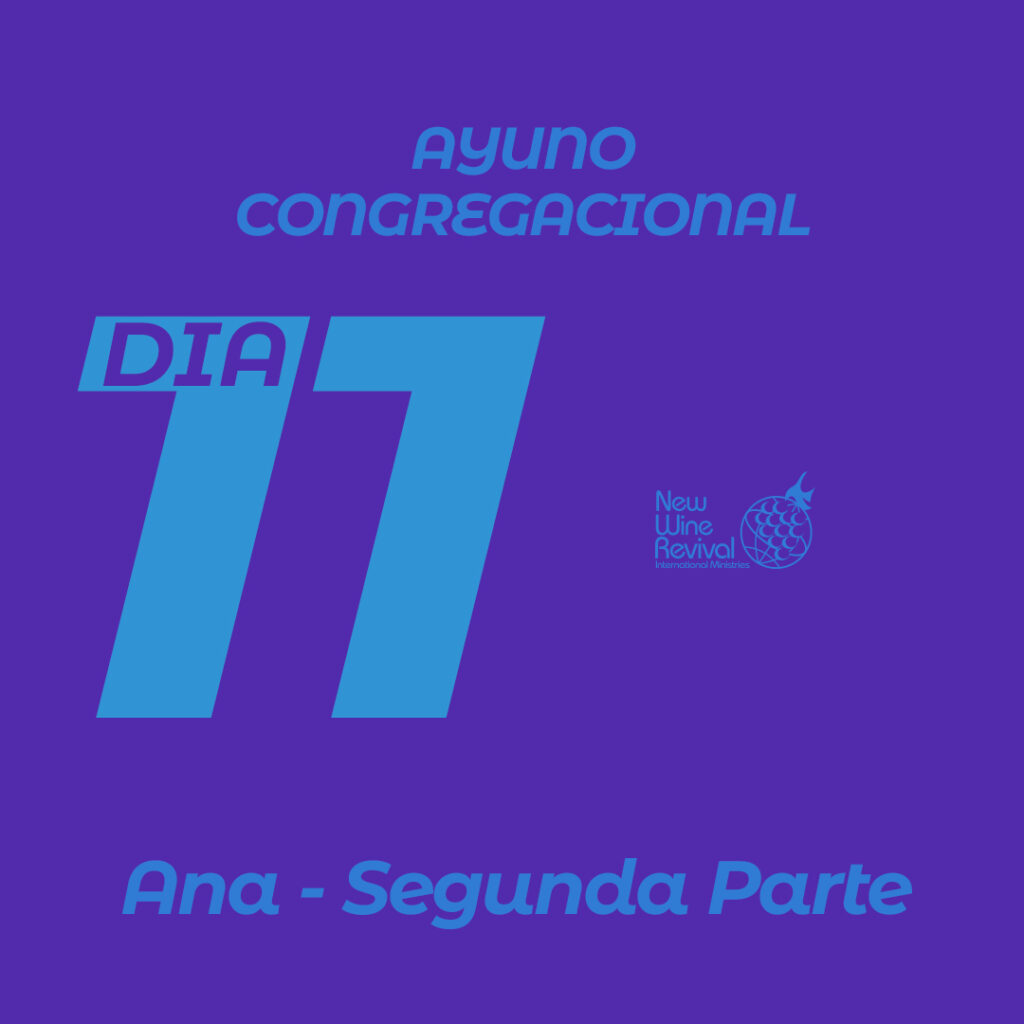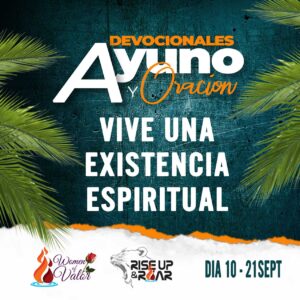
¿Dónde llevar mis emociones?
La historia de Ana en 1 Samuel 1 nos muestra lo que en alguna etapa de nuestra vida hemos vivido. Al igual que ella, ocasión tras ocasión, hemos estado inmersos en un ciclo de dolor que nos lleva a descuidar nuestra salud, nuestro cuerpo y nos acarrea frustración y desesperanza.
1 Samuel 1: 7b En cada ocasión, Ana terminaba llorando y ni siquiera quería comer.
¿Cuántas veces te has sentido como Ana, infeliz, enojada o frustrada por alguna situación que te parece injusta, que no es lo que esperabas? Yo me he sentido de esa manera más de una vez y he pensado que mi dolor no importaba y que debía lidiar con él por mi cuenta.
Por mucho tiempo Ana no tuvo hijos, lo que en tiempos antiguos era devastador para una mujer. Sufría desprecio por su esterilidad. Cada año, en el tiempo de ir a ofrecer sacrificio con su esposo era cuando más evidente se hacía su sufrimiento.
Ana había entrado en un ciclo de dolor que se repetía cada año. Cada vez que subían al templo sentía el desprecio de Penina (la otra esposa de Elcana) y ella terminaba enojada, llorando y dejando de comer. Esto sucedía una y otra vez. Ana había establecido un patrón de comportamiento; sus emociones (enojo, tristeza, frustración) la llevaban a conductas autodestructivas.
La historia da un giro el día que Ana hace algo diferente, cuando rompe el patrón que venía desarrollando año tras año. Esta vez decide hacer algo más. Esta vez acude a alguien: fue delante de la presencia de Dios y derramó su alma. Expresó delante de Dios su angustia, sacó toda la amargura que llevaba adentro por años, lloró abundantemente delante de Él, le contó a Dios la razón de su angustia y le pidió intervenir en el problema.
1 Samuel 1:10 10 Ana, con una profunda angustia, lloraba amargamente mientras oraba al Señor.
Dios escuchó su clamor y, a través de Elí, le envió un mensaje de paz, tranquilidad y confianza que generó en ella una actitud distinta. Ana ahora reacciona de otra manera. Las circunstancias no han cambiado, pero ella cambia al estar en la presencia de Dios y expresar sus emociones.
1 Samuel 1:16-18 Pues he estado orando debido a mi gran angustia y a mi profundo dolor.
17 —En ese caso —le dijo Elí—, ¡ve en paz! Que el Dios de Israel te conceda lo que le has pedido.
18 —¡Oh, muchas gracias! —exclamó ella.
Así que se fue, comenzó a comer de nuevo y ya no estuvo triste.
Esta historia nos da una nueva perspectiva ante las emociones que nos desbordan: aprendemos que la presencia de Dios es el lugar correcto a donde llevar nuestras emociones, especialmente las difíciles. Derramar mi alma delante de Él, llorar en su presencia, llevar mi causa delante de Él, sean quejas, frustraciones, miedos, lo cambia todo.
Cuán transformador es saber que Dios no se asusta de mis emociones, que Él las entiende tan bien que me recibe con brazos abiertos, que me acaricia con su paz, toma mis cargas, preocupaciones, frustraciones, toma mi enojo y no me juzga. A cambio, Él me da paz y gozo, transforma aquello que me agobiaba en una nueva manera de ver las circunstancias. En su presencia, soy transformada y libre para expresarme.
Hoy, este Padre amoroso te invita a venir delante de su presencia a derramar tu alma, a llevar delante de su trono cada emoción, cada angustia y preocupación.
¿Responderás a esta invitación?
¡Él te está esperando!
Oración:
Padre bueno! Hoy venimos ante tu presencia a derramar nuestra alma y entregarte todas nuestras emociones, lo que nos frustra, entristece, enoja, todas nuestras cargas delante de tu altar así como lo hizo Ana; nos despojamos de la amargura y resentimientos guardados a causa del desprecio y burla de los demás, y tomamos la paz y el gozo de tu presencia donde somos sanadas en nuestra alma por tu poder, en el nombre de Jesús somos libres, Amén!
Ana, Second Part
Where do I take my emotions?
The story of Hannah in 1 Samuel 1 shows us what at some stage in our life we have lived. Like her, occasion after occasion, we have been immersed in a cycle of pain that leads us to neglect our health, our body and brings us frustration and hopelessness.
1 Samuel 1: 7b Each time Hannah ended up crying and she didn’t even want to eat.
How many times have you felt like Ana, unhappy, angry or frustrated by some situation that seems unfair to you, which is not what you expected? I have felt that way more than once and have thought that my pain did not matter and that I should deal with it on my own.
For a long time Ana had no children, which in ancient times was devastating for a woman. She suffered contempt for her sterility. Every year, at the time of going to offer sacrifice with her husband was when her suffering became most evident.
Ana had entered a cycle of pain that was repeated every year. Every time they went up to the temple she felt the contempt of Penina (Elcana’s other wife) and she ended up angry, crying and not eating. This happened over and over again. Ana had established a pattern of behavior; her emotions (anger, sadness, frustration) led her to self-destructive behaviors.
The story takes a turn the day that Ana does something different, when she breaks the pattern that she had been developing year after year. She this time she decides to do something else. This time she goes to someone: she went before the presence of God and poured out her soul. She expressed her anguish before God, she brought out all the bitterness that she had carried inside her for years, wept abundantly before Him, told God the reason for her anguish and asked Him to intervene in the problem.
1 Samuel 1:10 10 Hannah, in deep anguish, wept bitterly as she prayed to the Lord.
God heard her cry and, through Eli, sent her a message of peace, tranquility and trust that generated a different attitude in her. Ana now reacts differently. Circumstances have not changed, but she changes by being in God’s presence and expressing her emotions.
1 Samuel 1: 16-18 For I have been praying because of my great anguish and deep pain.
17 “In that case,” Eli told him, “go in peace!” May the God of Israel grant you what you have asked.
18 “Oh, thank you very much!” She exclaimed.
So she left, she started eating again and was no longer sad.
This story gives us a new perspective on the emotions that overwhelm us: we learn that God’s presence is the right place to take our emotions, especially difficult ones. To pour out my soul in front of him, to cry in his presence, to bring my cause before him, be it complaints, frustrations, fears, it changes everything.
How transformative it is to know that God is not scared of my emotions, that He understands them so well that he welcomes me with open arms, that he caresses me with his peace, takes my burdens, worries, frustrations, takes my anger and does not judge me . In return, He gives me peace and joy, he transforms what was weighing me down in a new way of seeing circumstances. In his presence, I am transformed and free to express myself.
Today, this loving Father invites you to come before his presence to pour out your soul, to bring before his throne every emotion, every anguish and concern.
Will you respond to this invitation?
He is waiting for you!
Prayer:
Good father! Today we come before your presence to pour out our soul and give you all our emotions, which frustrates us, saddens us, angers us, all our burdens in front of your altar just like Ana did; we shed the bitterness and resentments kept because of the contempt and mockery of others, and we take the peace and joy of your presence where we are healed in our soul by your power, in the name of Jesus we are free, Amen!



